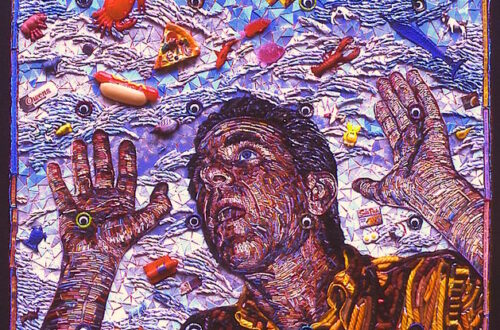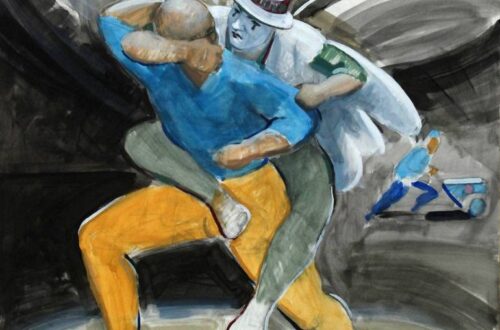-
The Beginning of the End: 2 Samuel 13
This is the beginning of the worst period of David’s life. The effects and consequences of this rape and his response to it plague him and the whole nation for the rest of his life. His adultery with Bathsheba set in motion a series of events that in one way or another corrupt his house and the nation until they go into captivity hundreds of years later. You know the phrase “A Simple Twist of Fate”? What might well have been an isolated act has a ripple effect no one could have predicted and in every generation afterwards it only gets worse. We think of “crimes without victims” and fail…
-
David and Bathsheba
1. If I did not know this story was from Scripture, I would think it was one of the morality plays popular in the 16th century. In them, the main character was surrounded by good and evil influences and the tension was what choices they would make – good or bad. There are many tragic stories in Scripture but, for me, this is the one with the greatest sense of loss – not only for David and Bathsheba and everyone involved for the remainder of David’s life. Nothing goes right. Nothing is ever the same. Camelot shuts down and the stage goes dark with only a few moments of light…
-
God’s Promise to David: 2 Samuel 7
1. We read that David was settled in his palace and the Lord had given him rest from all his enemies around him. He says to Nathan, the prophet, “Here I am, living in a palace of cedar, while the ark of God remains in a tent.” Nathan replies to the king, “Whatever you have in mind, go ahead and do it, for the Lord is with you.” That night the word of the Lord came to Nathan saying, “Go and tell my servant David, ‘This is what the Lord says: Are you the one to build me a house to dwell in? I have not dwelt in a house…
-
The Murder of Ishbosheth
1. This is a story that is in the news all the time. It’s a constant theme in politics and power. It’s about loyalty, political maneuvering, intrigue, and the normalization of dangerous behavior. “When Ishbosheth son of Saul heard that Abner had died in Hebron, he lost courage, and all Israel became alarmed.” So much is packed into that one simple phrase! We know the background. Saul’s general, Abner, had set up Ishbosheth as King of Israel as Saul and his two sons had been killed in a battle with the Philistines. While David was anointed, Ishbosheth is merely appointed and we soon see what a difference it makes. Abner had…
-
2 Samuel: 2-3 David, Abner and Joab
We need a bit of context before jumping into the text. At the end of 1st Samuel Israel is at war again with the Philistines. David, thinking the only safe place to escape Saul’s determination to kill him was with the Philistines, left Israel and lived with one of the Philistine tribes. He would have gone into battle with them against Saul and Israel but the Philistines armies did not trust him. During the final battle, three of Saul’s four sons are killed. Saul is wounded but to avoid being abused by the Philistines he kills himself. When the Philistines find his body he is beheaded and stripped of his…
-
1 Corinthians 13
If I speak in the tongues of men or of angels, but do not have love, I am only a resounding gong or a clanging cymbal. If I have the gift of prophecy and can fathom all mysteries and all knowledge, and if I have a faith that can move mountains, but do not have love, I am nothing. If I give all I possess to the poor and give over my body to hardship that I may boast, but do not have love, I gain nothing. Love is patient, love is kind. It does not envy, it does not boast, it is not proud. It does not dishonor others,…
-
2 Corinthians 10-13
1. You may have heard or read Bishop Michael Curry’s sermon for the royal wedding yesterday. So many have commented on the fact that he actually preached a Biblical view of love – not just romantic but redemptive love that changes the world. “We must discover the power of love, the redemptive power of love. And when we do that, we will make of this old world a new world. Love is the only way,”. As well, one of his most memorable lines was a reference to the love of Jesus. “Jesus did not get an honorary doctorate for dying. He wasn’t getting anything out of it. He sacrificed his life…
-
2 Corinthians 8-9: Made Rich In Every Way
Before we look at the text we need to say that there is a particular context for Paul’s letter to the Corinthians. He did not write this as an overall guide to giving. This is not Paul’s philosophy of giving but his response to a particular gift for the church in Jerusalem. You know there was quite a bit of tension between Paul and the Church fathers over his work with the Gentiles. In fact, early on he had been brought in to explain why he was focusing on the Gentiles and even allowing them to become believers without becoming Jewish converts first. Paul was anxious to show he was…
-
2 Corinthians 5:11-21
1. Where do you find the essentials of the gospel. The early church called it the kerygma or the core of the good news. People often say “if you had only one minute to state your deepest belief about life, what would you say or what would you want most to say to pass on to your family””. That is the kerygma. It is the fundamentals of what Paul and others preached. Doctrines and creeds came later but first there was the essence or the foundation upon which everything else was built. It’s important to get our kerygma right from the very start. Some have made political beliefs and ideologies…
-
2 Corinthians 4:1-12 – Jars of Clay
“Since God has so generously let us in on what he is doing, we’re not about to throw up our hands and walk off the job just because we run into occasional hard times. We refuse to wear masks and play games. We don’t maneuver and manipulate behind the scenes. And we don’t twist God’s Word to suit ourselves. Rather, we keep everything we do and say out in the open, the whole truth on display, so that those who want to can see and judge for themselves in the presence of God. If our Message is obscure to anyone, it’s not because we’re holding back in any way. No,…


